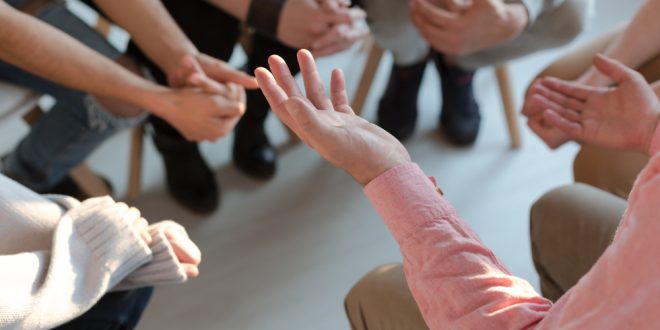
The lockdown can be a challenging period for those afflicted by problem gambling, with rising levels of anxiety and boredom, it’s more important that support services are available.
Speaking to SBC, Matthew Hickey, CEO of Gordon Moody Association, highlighted the need for wider industry collaboration to ensure that player protection remains at the top of the agenda, while also explaining that the US must draw upon ‘lived experiences’ to develop effective strategies to tackle problem gambling.
________________
SBC: With SBC Digital Summit NA fast approaching, and more states beginning to legalise sports betting, how can legislators ensure that they are implementing best practices to protect players? Are there lessons to be learned from the UK?
Matthew Hickey: What I would say is that the US could really be utilising lived experiences, and working with those who have got lived experience to develop the right strategies. So, we’re doing a lot of work on our service user involvement strategy to really help shape the support that is in place based on the needs of the individual – as that is changing quite a lot.
Land-based gambling, as was in the UK, is typically associated with being very white, middle-aged, lower socioeconomic background. But that’s changing, there are a lot more bigger groups. There’s a lot more younger people, and a lot more women gambling too.
So I think the US could really help itself by working with and understanding the needs of each of those groups and developing their strategies based on these needs. Gambling can be addictive in the same way that substances can be – both have a root cause, and legislators need to understand that. If we can get to the cause, we can offer the necessary support to deal with both the addiction and the underlying issue. I think that there is a lot that can be learned from the UK, and we are very happy to help those that need our support.
SBC: Would you say that the industry’s comments that gambling participation levels have dropped during the pandemic are accurate?
MH: I think the key thing to say is that hits on our Gambling Therapy website, which is our international treatment site, are down 23%. However, the meaningful interactions that we’re having – those where we’re having detailed conversations with people that need our support – has increased by 62%. So the intensity, and therefore those with more problem gambling issues has gone up exponentially.
I think from a profile of the people we support, there is a worry during lockdown – people are anxious about what they are dealing with, anxiety levels are up, depression levels are up. Due to anxiety levels brought on because of lockdown, boredom, and substantial lifestyle changes – what was previously normal is not so anymore – a lot of people have reached out to us for support during that time. It is possible that their gambling habits have increased, or they’re worried about previous gambling habits coming back.
From a North American perspective, the US and Canada are still the third and fourth highest rank on our website, with Brazil consistently at the top.
From what we do in the UK in terms of our residential treatment, applications for residential treatments is down 60% – firstly, we have closed one of our sites, and secondly this is actually in line with our expectations. We’re feeling that this has happened due to a lack of privacy at home, a reluctance to give up on gambling due to boredom and isolation. That said, our outreach work has changed quite dramatically – we were talking to around 30 people each month, and that’s now 250 each week.
Of the people that we are speaking to, they’re coming to us with a lot more complexity in their issues. They’re calling us with not just gambling addictions, but other issues too such as substance addictions. The profile of the people that we’re seeing has also changed, with more young people and women reaching out to us. Finally, 73% of our callers are online gamblers, with 4% land-based. So really, the impact has intensified what we’re seeing. While core volumes have gone down, the intensity has gone up.
We keep talking about the quiet before the storm, and now that we’re moving into Q2 2020, we’re definitely seeing an upsurge in numbers. Where people weren’t calling us in Q1 due to isolation and family being around, people are now accessing support.
SBC: A recent report published by the House of Lords Gambling Select Committee has outlined a series of recommendations to try minimise rates of problem gambling and prioritise player protection. Do you think the recommendations are sufficient? Or is there still a lot more that needs to be done?
MH: Firstly, we were involved in reporting to the House of Lords Select Committee, so I was involved in providing evidence to them. From my point of view and where we stand at Gordon Moody, what we’ve seen in the recommendations has highlighted that we need to work more closely in collaboration with the industry.
We’re definitely seeing an industry that wants to do more and wants to learn from lived experience, and we’re definitely seeing an industry that wants to provide the right tools for individuals to be able to cope with their needs.
That said, those people that we see are highly manipulative. What I mean by that is that they will have – over a period of time – manipulated their way around a system. Taking online betting as an example, they may well have set up multiple bank accounts, or several profile names so that they can hide their problem. We have to be very mindful that the residents we see are those which know how to avoid the system. Therefore, it’s imperative that we work in collaboration with the industry to put measures in place to stop this from happening. We need to learn from each other to ensure that we put the right mechanisms in place.
I will take on board everything that has been recommended by the Select Committee, but I think that the industry is definitely responding much more positively than it has previously. And it is obvious that there is a lot the betting industry wants to do in the future. We’ve spoken to a number of organisations, and they want to learn from companies like ours on how they can improve player protection.
People that want to manipulate the system to gamble will always find a way, so we must be responsive in that aspect. We need to learn from lived experience and learn from how they are changing – both of which will make a big difference so there has to be that collaboration.
SBC: The large amount of publicity surrounding the return of live sport has previously been described as a ‘perfect storm’ for problem gamblers – how has GMA been supporting those that have struggled with gambling addiction during the lockdown?
MH: What we have done is that we’ve introduced a lot more support for those waiting to come into residential treatment facilities in addition to further outreach support for those that have previously been through treatment. We’ve also introduced ‘friend and family groups’ and more opportunities for people to share their experiences online. Through those types of devices, we’re providing people with the necessary tools to deal with this ‘perfect storm’.
Gambling is often seen as the hidden addiction, but the profile of gambling addicts is changing quite dramatically. The age of people is shifting, we’re getting a lot of younger people calling in, and a lot more women too.
I think in this day and age, we share a lot more on social media, people are so much more open. So hopefully, the hidden addiction won’t be so hidden anymore. There is also a great opportunity to learn from one another’s experiences – in the same way that 10-15 years ago mental health was something that no one really spoke about, but now, if you have an issue you’re able to speak openly. I hope that gambling addiction, the stigma that you’ve gambled money will disappear and people will feel that they can seek the help that they need and not hide away.
There’s a great quote that says ‘everyone who has an addiction will have suffered a trauma in their life. But not everyone that has suffered a trauma will be an addict’. So what we have to understand is the root cause of why someone will develop a gambling addiction. Whether it is due to their personal lives or as an escape, we need to understand the underlying cause and tailor our solutions.
________________________
Gambling Therapy is exhibiting at the upcoming SBC Digital Summit North America. To register for the event, click here.










